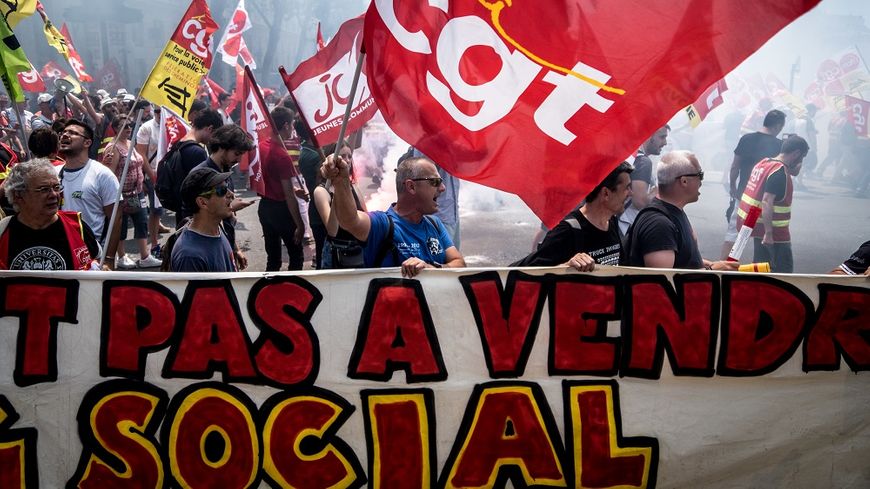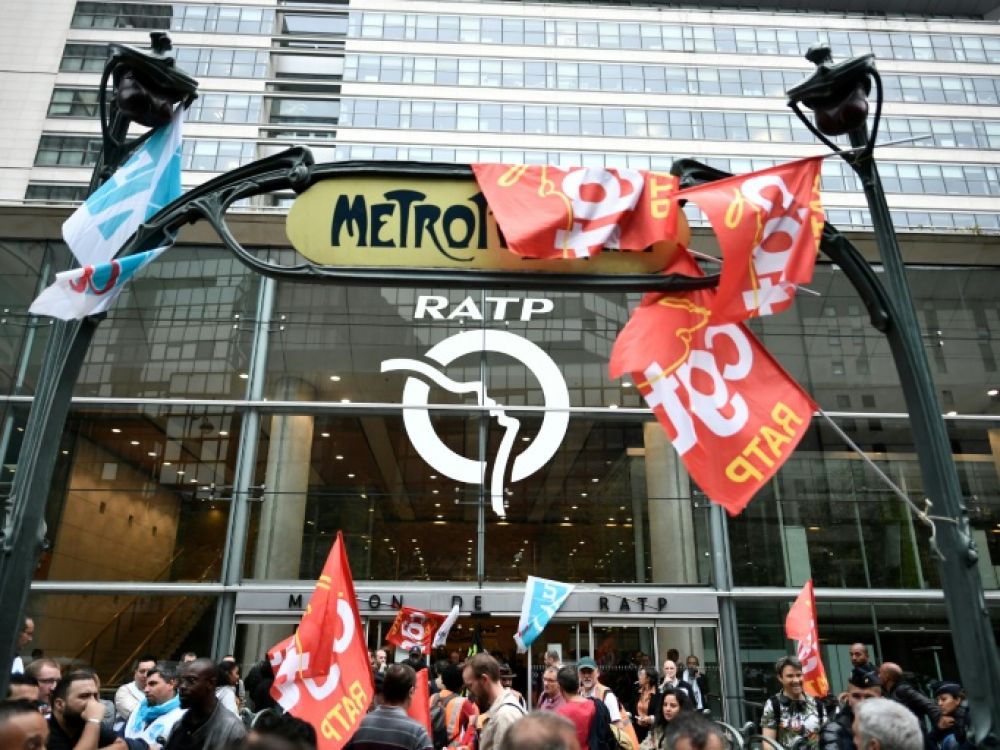Let’s talk about a French stereotype: strikes. If you don’t know, the French have a reputation for constantly striking against the government–it’s a right protected by their constitution and it’s been going on majorly since 1789, a.k.a., the French Revolution.
As with everything in France, there’s clearly a long and complicated history when it comes to striking, but nonetheless, it’s an important part of the political life to understand here. People rally in the streets for manifestations (protests) and leave their jobs for grèves (strikes) to tell the government their opinion, and it works. Often times, the government is either forced to change their laws or back down completely due to the voice of the people.

20% of people here in France are fonctionnaires, meaning they work for the government. Whether as train operators, construction workers, police or in the town halls, you name it, people work it. So, the more people that work for the government under les syndicats (unions), the more strikes you’ll have. It just makes sense. That, and don’t forget about the 1789 Revolution.
Anyways, back to today. On the 5th of December, the SDNF and RATP, the two major train companies that operate the Paris Metro and Eurostar, completely quit operating. The Paris metro stations look like shopping malls after close, with big metal grates blocking their entrances. There are still a few bus and train lines a day during rush hour, but trying to get on one is like scoring a deal on the latest iPhone on Black Friday, speaking of shopping malls, and by that I mean: Prepared to get trampled!

The issue? Retirement. Due to an aging population and expanding life expectancy here in France, the government’s social security system can no longer support everyone’s needs. The system for retirement needs reformation, and it has for years. Unfortunately, the current proposed change by President Macaron is said to be causing a lot of distress for middle class workers on the brink of retirement.

Though the official retirement age will be kept at 62, the new plan calculates pension differently, and is said to encourage (and maybe financially force) workers to stay at their post for longer. This is a serious matter for aging fonctionnaires in tough working conditions, like metro drivers, who’s life expectancy is shorter on average than other occupations. They’re worried they might not be able to retire as soon as planned.
À cause du grève, all of my classes have been online since Thursday, and I had to take my exams via Skype with my professors because the trains have been down for a full week now, not to mention protests are so big that they’re blocking roads–it is the largest industrial walkout since 1995, after all.

The protesters were close to my apartment yesterday so I was doing homework to a soundtrack of endless sirens. While there’s a small risk of danger here, for the most part, everyone is completely calm as this is a part of political life here in France, and there’s no real danger on the street. If you’re not near a protest or don’t know about the train strikes, you’d think it’s a day just like any other here in Paris. This is just another fascinating part of life abroad–when you enter another country, you enter into another political culture.

